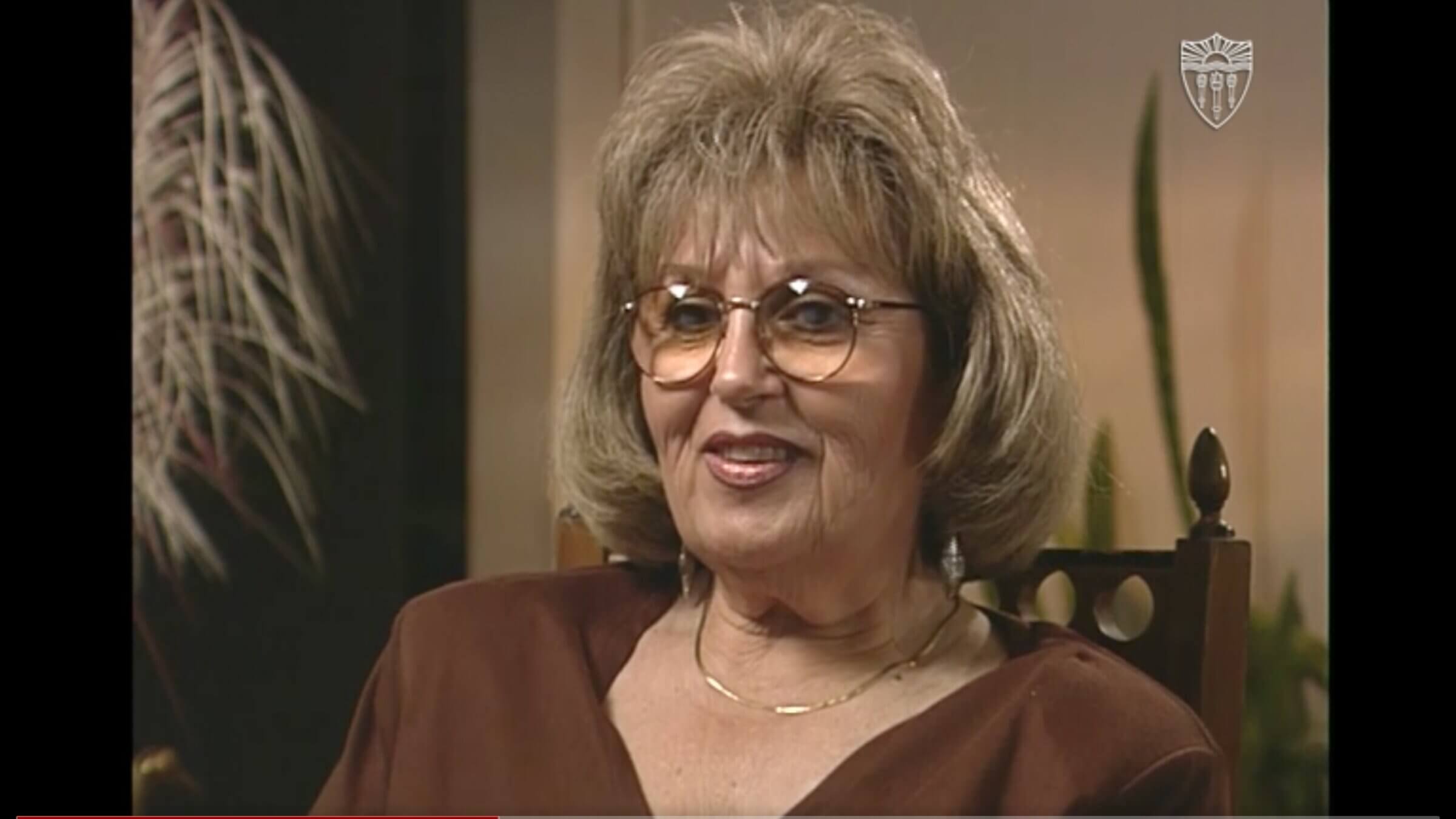Meet the Auschwitz survivor saluted by George Santos in Congress
Some doubted her story was real. But it is, and it will break your heart

Eva Lipsky as shown in testimony recorded by the USC Shoah Foundation. Courtesy of USC Shoah Foundation
When Rep. George Santos marked Holocaust Remembrance Day on the House floor by saying that the grandmother of one of his staff members had survived Auschwitz, some were skeptical.
“Someone needs to verify that this person exists,” tweeted one person.
“Any truth to this re George Santos staffer?” tweeted another.
The skepticism was understandable: Santos, a New York Republican, falsely claimed that his own grandparents were Holocaust survivors. (In fact, they were born in Brazil before the Nazis came to power.)
But the unnamed woman Santos saluted in Congress on Jan. 27 is real. And her story deserves to be known — not only to counter those who deny that the Holocaust happened, but also to honor a woman who was deported to Nazi death camps at age 14, then rebuilt her life after the war with fortitude and joy.
Her name is Eva Lipsky. She’s 92, was born in Hungary, and survived both the Auschwitz and Bergen-Belsen concentration camps. Her granddaughter Gabrielle Lipsky was press secretary for Santos’ campaign and now works in his Washington office.
In a two-hour testimony recorded in 1997 by the USC Shoah Foundation, the organization founded by Steven Spielberg, Eva Lipsky told of being forced out of her home in 1944 with her mother and four siblings. (Her father, a Hungarian soldier, had disappeared earlier in the war.) They were sent to Auschwitz and split into two lines upon arrival.
Lipsky recalled the harrowing moment when her mother begged a soldier: “Can I please save my family, my children?” Those pleas were to no avail. “Me and my sister were separated from my mother and the rest of the children,” she said. “They went one way. We went another way.”
Eventually Lipsky realized what had happened: Her mother, two sisters and a brother were murdered in the gas chambers. “We smell that smell,” she said. “You see the smoke coming out, that body-burning smell.”
Lipsky was forced to work sorting clothing and later was put to work in a munitions factory. She subsisted on water and pieces of raw potato; shivered at roll call in freezing weather wearing nothing but a thin striped uniform and wooden shoes; and held her sister up so the guards wouldn’t see her fainting. She showed her tattoo to the camera — A10229 — and after liberation, recalled hiding in hedges outside the camp. “The Germans were running after us with guns to kill us,” she recalled.
Lipsky’s demeanor turned joyful as she described what happened after the war. She was sent to a girls’ home run by nuns, “where they took care of us very nicely,” and later was taken in by a Swiss woman who “was like a mother to me.” Eventually an aunt in the U.S. discovered that Lipsky and her sister Clara were alive and sent for them. The girls sailed to New York in 1947; Lipsky was 17 and remembered spotting her aunt and uncle after passing the Statue of Liberty. “We came up on the deck and right away waved,” she said. “They knew it was us. It was a very happy moment.”
She met her husband in New York and settled down. “There was a lot of joy around that time,” she said, smiling. “I got married, raising a family, good children — God bless them!”
She added: “This country is great.”
Calls placed by the Forward to a number listed for Eva Lipsky were not returned.
Santos’ staff member, Gabrielle Lipsky, in a text message to the Forward, said, “Thank you for listening to my grandmother’s story,” but offered no further comment.
Gabrielle’s father, David, a conservative Republican and strong Trump supporter, told the Forward in a phone interview that his mother Eva had met Santos, and added: “My mother is real, alive and very healthy, very outspoken.”
The Forward asked him whether he believes Santos’ claims that his grandparents were Holocaust survivors in light of evidence that they were born in Brazil before the Nazis came to power.
“The communication that he had with my mom, and they spoke, he rendered some great things from his grandfather, you know, from his past history — which no one actually knows the truth,” David Lipsky said. “I don’t even know the truth.”
But does he believe Santos? “I think the proof will be in the pudding shortly,” he said. “That’s not for me to say. I think that it is for him to show and I’m not going to make that suggestion.”
In the Shoah Foundation video, Eva Lipsky described herself as an “extremely overprotective” mother because everything “was taken away from me … I seen too many things as a youngster.” As her kids got older, “they started to understand. I explained what I’d been through.”
At the end of her testimony, several of her family members were interviewed, including David. He said when people complain about “hard times and a hard life,” he can’t help but think of his mom. “I don’t think there’s much to compare about a Holocaust survivor,” he said. “There’s nobody that can beat my mom.”























